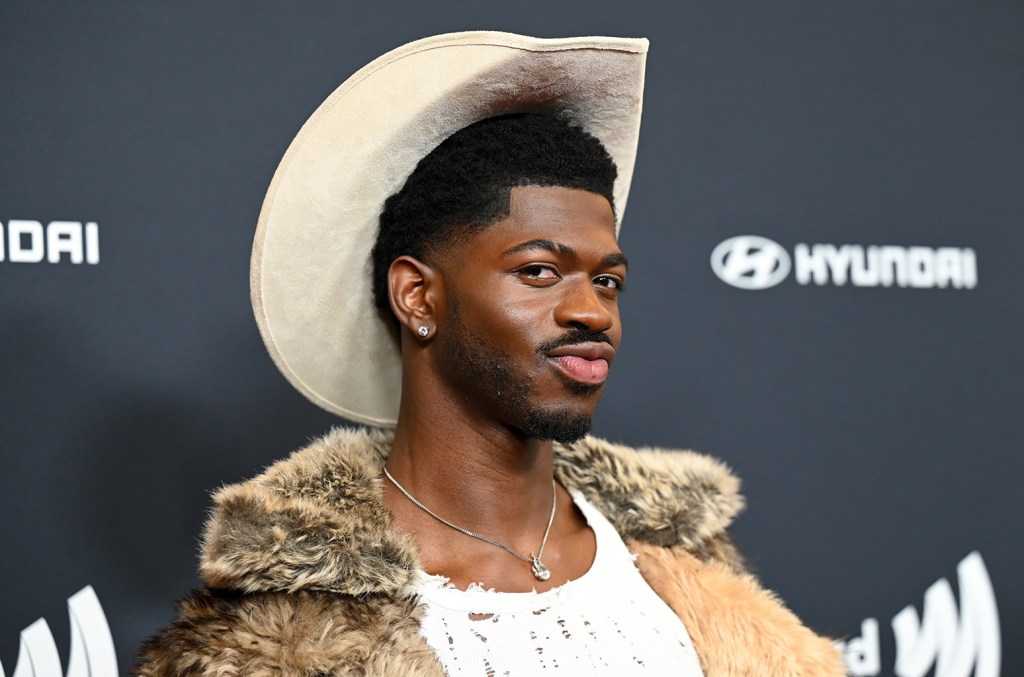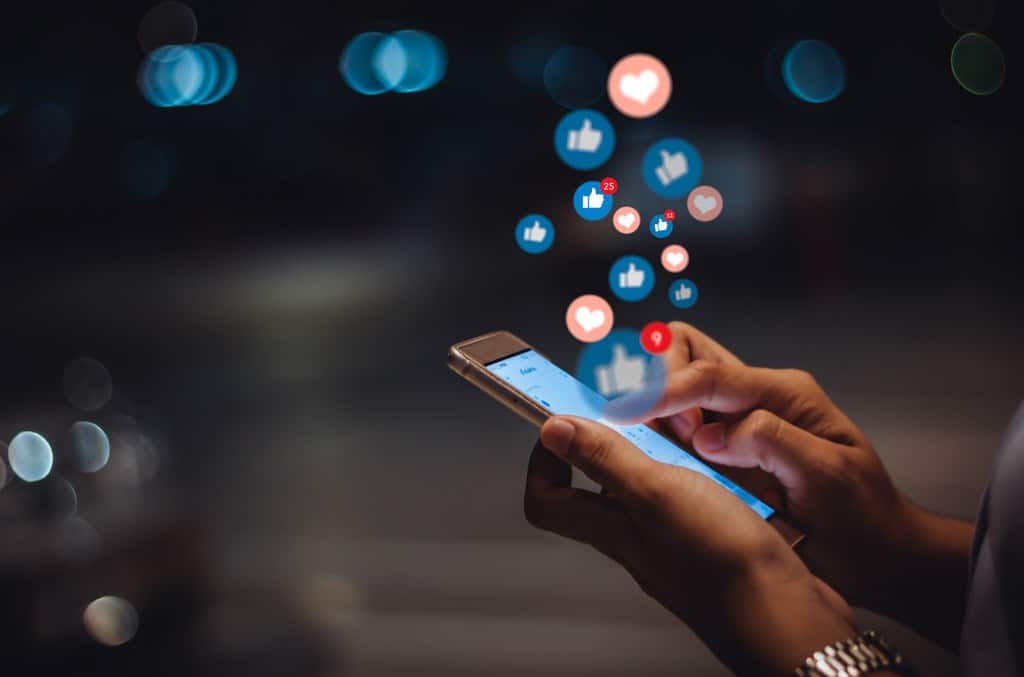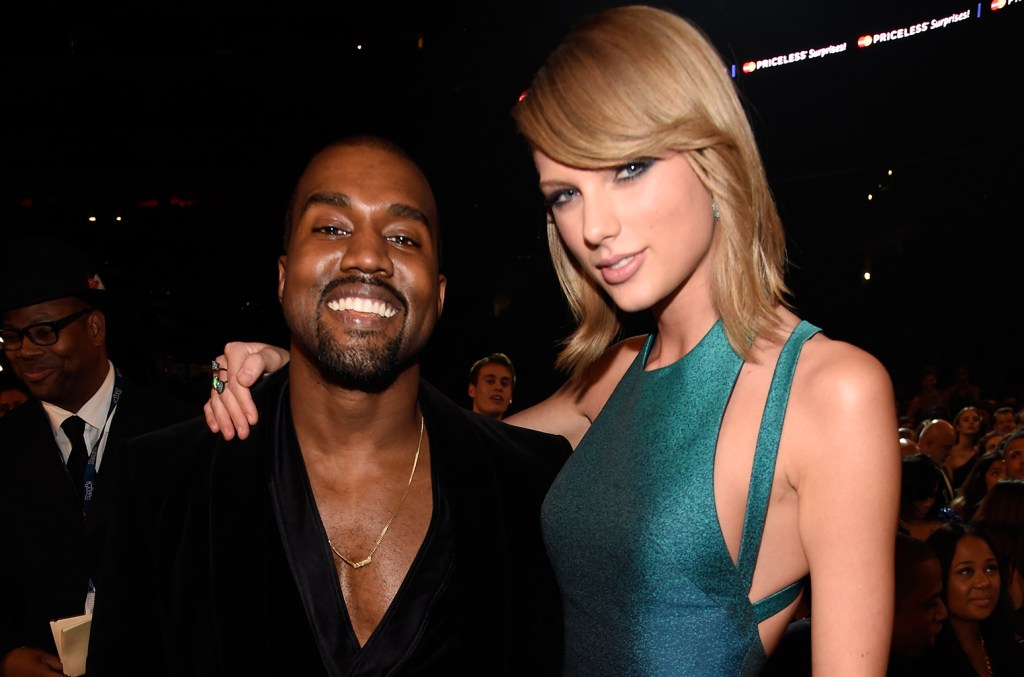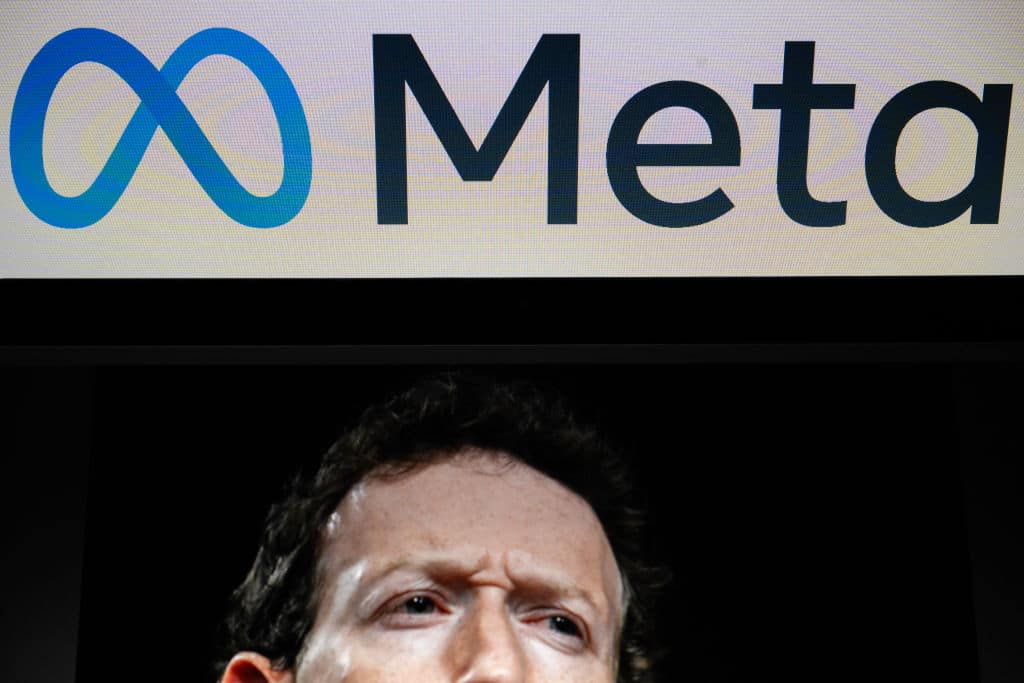Jennifer Lopez is facing copyright infringement claims for allegedly posting two paparazzi pictures of herself outside a Golden Globes pre-party in January without paying to license the photos.
Lopez was hit with a pair of federal court lawsuits on Saturday (May 17) from photographer Edwin Blanco and photo agency BackGrid USA. They say they co-own the two images of the pop singer and actress standing outside the Amazon MGM Studios x Vanity Fair Party at Los Angeles’ swanky Bar Marmont the night before this year’s Golden Globe Awards on Jan. 4.
A lawyer for Blanco and BackGrid alleges Lopez posted the photos to her Instagram and X accounts on Jan. 5 without permission. This supposedly set off a spate of reposts from fan pages and fashion brands, including the designer of a faux fur coat Lopez was wearing in the photos.
Trending on Billboard
“Ms. Lopez’s unauthorized use of the Images is commercial in nature, intended for the purpose of self-promotion,” wrote attorney Peter Perkowski. “For example, Ms. Lopez used the images to spotlight the designer of her clothing and jewelry, leveraging the publicity from the event to promote her fashion affiliations and brand partnerships.”
According to the lawsuits, a representative for BackGrid and Blanco contacted Lopez’s team about the alleged copyright infringement the next week. Perkowski says the two sides had “fruitful discussions” and orally agreed to a monetary settlement, but Lopez never signed a written settlement agreement and has not paid the promised money.
The lawsuits also note that Lopez was previously sued in 2019 for posting an unauthorized paparazzi image of herself and her then-boyfriend Alex Rodriguez to her Instagram account. That case, also brought by Perkowski, was ultimately dismissed voluntarily in 2020.
“This prior litigation placed Ms. Lopez on notice regarding the legal requirements and potential consequences associated with the use of copyrighted images without proper authorization,” continued Perkowski. “Despite this, Ms. Lopez has continued to engage in similar conduct, demonstrating a willful disregard for BackGrid’s copyrights through a pattern of behavior that undermines the rights of content creators.”
BackGrid and Blanco are accusing Lopez of willful infringement under the federal Copyright Act, which could entitle them to damages of up to $150,000 per photo.
Lopez’s reps did not immediately return a request for comment on Monday (May 19).
While seemingly strange, it’s quite common for celebrities to be sued for posting paparazzi photos of themselves to social media. Artists including Miley Cyrus, Dua Lipa and Justin Bieber have all faced similar lawsuits in the last few years.
As Billboard wrote in 2022, U.S. copyright law is on the side of photographers and image licensers. Though it may seem unfair, celebrities do not automatically co-own images of themselves and therefore don’t have the right to repost them for free.
Lil Nas X can’t be sued by an Instagram user who claimed the superstar stole his distinctive “poses” and used them in his own posts, federal appeals court says – ruling that the dispute images “share few similarities” and Lil Nas likely never saw them anyway.
Rodney Woodland, a freelance artist and model, claimed in his 2022 lawsuit that the “Old Town Road” rapper (Montero Lamar Hill) had illegally replicated several provocative photos in which Woodland struck elaborate poses while partially nude.
But in a ruling Friday, the U.S. Court of Appeals for the Ninth Circuit says that the dueling sets of Instagram posts share only a few scattered similarities that didn’t legally add up to copyright infringement.
Trending on Billboard
“Hill’s photograph shares almost nothing in common with Woodland’s,” Judge Kenneth K. Lee writes, analyzing two of the images. “The photos both depict a Black man folded in on himself, but the similarities stop there. The objective elements in the photos—the men’s poses, colors, lighting, backgrounds, etc.—are different.”
The appeals court also rejects Woodland’s lawsuit for an even simpler reason: That Lil Nas had likely never seen the images he was accused of copying. That issue – known as “access” in copyright law – is a crucial component in any infringement lawsuit.
“It is not enough to simply allege that [Lil Nas] is an active user of Instagram and thus had a reasonable possibility of viewing Woodland’s photos,” Lee writes for a three-judge panel. “There are over a billion users and many more posts on Instagram. The mere fact that Hill uses Instagram and that Woodland’s photos are on Instagram raises no more than a bare possibility that Hill viewed Woodland’s photos.”
Attorneys for both sides did not return requests for comment on the ruling on Monday.
Woodland sued Lil Nas in June 2022, claiming the rapper had ripped off 11 of his copyrighted photographs, illegally copying “original and unique elements” of them including “poses, colors, lighting and coloring.” The images all feature Woodland and Nas naked with their genitals obscured, either by their pose or the use of editing elements.
A federal judge dismissed the case in 2023, and the Ninth Circuit affirmed that ruling on Friday. In its written opinion, the appeals court included side-by-sides of each disputed pair of photos and detailed why each of Nas’ posts were not improper.
“The commonalities go no further than the depiction of a man reclining on his side with certain body parts strategically covered — a common pose in photos of male models and actors,” the court wrote about one set of images.
Several of the disputed photos featured both Woodland and Nas “draped in chains.” The court said that was a clear similarity, but not one that trigger’s copyright law’s protections for creative expression.
“The idea in each of the photos is the same — the provocative image of a Black man in chains,” the court wrote. “But that idea is not protected — indeed, it is a common motif in many pieces of art. Only the expression through the selection and arrangement of objective elements receives copyright protection.”
Friday’s ruling carries added importance because it is a so-called precedential ruling, offering new case law on the issue of copyright “access” in the era of social media.
The court said the rules had involved in an analog world and that Instagram and other platforms had made it “easier than ever” for copyright works to be widely disseminated. But the court also warned that accusers would still need to prove that an alleged infringer had a good chance of seeing their work — and that none of Woodland’s posts had recieved more than 75 “likes” on Instagram.
“Social media and other digital-sharing platforms could make it easier for plaintiffs to show that defendants had access to their materials —but only if they can show that the defendants had a reasonable chance of seeing their work under that platform’s algorithm or content-sharing policy,” the appeals court wrote. “That is a big “if”— and, as explained below, Woodland has fallen short here.”
HipHopWired Featured Video
CLOSE
Baes & Baddies, Hip-Hop Wired’s curated space for some of the most beautiful women making moves online, is back with a new update with someone we’re sure readers will want to follow. Meet curvy IT tech, gamer, and all-around baddie @badgirl_tami AKA Tami LaReina, who delivers head-turning looks with ease.
We don’t know much about @badgirl_tami AKA Tami LaReina, but her bio says she works in IT and likes to stream her gaming sessions, as evidenced by her shared Twitch links. She also runs her own Discord server, posts heavily on Facebook and X, and has a YouTube page in development where she shares some of her gaming activities.
Below in the gallery section, we’ll share a variety of images across all of the spaces you can find @badgirl_tami AKA Tami LaReina, and be sure to hit that follow when you do.
—
Photo: @badgirl_tami/Instagram
HipHopWired Featured Video
CLOSE
Baes & Baddies, Hip-Hop Wired’s curated space for some of the most beautiful women making moves online, is back with a new update with someone we’re sure readers will want to follow. Meet curvy IT tech, gamer, and all-around baddie @badgirl_tami AKA Tami LaReina, who delivers head-turning looks with ease.
We don’t know much about @badgirl_tami AKA Tami LaReina, but her bio says she works in IT and likes to stream her gaming sessions, as evidenced by her shared Twitch links. She also runs her own Discord server, posts heavily on Facebook and X, and has a YouTube page in development where she shares some of her gaming activities.
Below in the gallery section, we’ll share a variety of images across all of the spaces you can find @badgirl_tami AKA Tami LaReina, and be sure to hit that follow when you do.
—
Photo: @badgirl_tami/Instagram
HipHopWired Featured Video
Drake is back to blazing the charts despite the overall consensus pointing to the fact that he seemingly lost the battle with Kendrick Lamar. In a new Instagram post, Drake vaguely suggests that he’s got more artistic moves on the way and teased his “next chapter.”
Taking to his preferred social media platform of Instagram, Drake captioned a series of photos with the following:
U know I grew up non confrontational and always treated this game as a sport where my pen won gold, but my these days the podium has been hard for all of us to ignore. I understand that this next chapter may leave you feeling uneasy, but I hope you see my honesty as clarity not charity that answers some questions especially about the unanswered texts you’ve been sending me.
Given that the OVO Sound honcho can be cryptic via social media, it isn’t known who this message is for or what it truly means. It could be assumed he’s ready to address all the chatter about his assumed downfall despite charting big with his latest collaborative album with PARTYNEXTDOOR, $ome $exy $ongs 4 U, which is currently the No. 2 selling album on the Billboard 200.
With the Anita Max Win tour in New Zealand and Australia put on pause, fans will certainly be awaiting new music and whatever the next moves are from Drake.
—
Photo: Getty
Even before a disruption in January caused by a looming U.S. ban, TikTok’s domination of video-based social media usage had started to wane. The service’s share of U.S. consumers’ time spent using social media apps fell to 29% in the fourth quarter of 2024 from 34% in the prior-year period, according to MusicWatch. In that same time span, YouTube Shorts’ share increased from 24% to 26% and Facebook Reels improved from 16% to 18%, while the “other” category rose one percentage point to 6%, Instagram Reels was flat at 18% and Triller remained at 3%.
That coincided with an overall downward trend in social media use. The average time spent using social media apps per week dropped from 7.9 hours in the fourth quarter of 2022 to 6.5 hours in the fourth quarter of 2024, says MusicWatch principal Russ Crupnick. That’s not an unexpected trend as Americans move further past pandemic-era behaviors, but Crupnick also notes that average times will fall as older, more casual users adopt social media platforms.
Trending on Billboard
Still, that overall decrease doesn’t account for TikTok’s declining share of consumers’ attention. A few years ago, the app seemed like an unstoppable freight train as its influence spread across tech and commerce. It also became a powerful promotional vehicle for artists, many of whom launched their careers by going viral on the platform. Once TikTok proved there was an insatiable demand for short-form video, Instagram and YouTube launched copycat products with Reels and Shorts, respectively. Its impact even spread to Amazon, which launched a TikTok-styled feed for product discovery called Inspire in 2022 (Amazon announced it was shutting down the feature earlier this week). Music streaming services also followed suit: At Spotify, artists can now post short video messages to their fans.
Exactly why TikTok lost share in 2024 isn’t clear. “It’s hard to say,” says Crupnick. “Is this a function of all the political nonsense going on around the app? Is it a function of YouTube and some of the competitors catching up a little bit? Is it a little bit of exhaustion with music on social video? Or is it all three?”
Whatever the case, this reshuffling of the landscape has led artists to flock to other platforms and eroded TikTok’s dominance as a promotional vehicle. Experts who spoke with Billboard about TikTok’s decline described a changing social media landscape in which the platform remains a powerful marketing tool but has lost some of its allure and potency. For a variety of reasons, consumers are spending more time at TikTok’s competitors, and artists are thus seeing more opportunity at platforms such as YouTube and Instagram.
One factor in TikTok’s decline in market share is YouTube and Meta successfully leveraging the scale and scope of their respective platforms to become serious contenders in short-form video. YouTube, in particular, has succeeded in integrating Shorts into a platform that used to be occupied only by long-form videos. “I think YouTube has done a good job of building an ecosystem,” says J.D. Tuminski, founder of Casadei Collective Marketing Agency. “They do a lot of education for artists and labels about building the Shorts ecosystem that feeds into the bigger picture of music video content and lifestyle content.”
Jenna Rosenberg, head of operations and marketing at Gorilla Management, agrees that YouTube has benefitted by combining short-form and long-form videos. “I think when people are watching the longer videos [on YouTube] they can easily get sucked into the short-form part of that platform as well, and vice versa. Whereas TikTok, it’s literally just the vertical short-form content.”
At the same time, YouTube and Instagram are increasingly seen as friendly to creators. “Anecdotally, YouTube and Meta pay better than TikTok,” says Tuminski. “Also, the TikTok creator fund is always shifting. There are different thresholds that you have to meet to be able to earn on there, and they’re not always clear.”
TikTok, on the other hand, is seen as prioritizing some of its e-commerce initiatives. TikTok Shop, for example, allows creators to stream live videos and sell goods and merchandise. In January, TikTok Shop sales were up 153% year-over-year, far exceeding the growth rates of Chinese e-commerce platforms Shein and Temu, according to Bloomberg. While live shopping may be a sensible practice for a TikTok influencer, musicians tend to shy away from that kind of activity — and as a result, they aren’t flocking to TikTok Shop. “An artist isn’t necessarily going to go on TikTok Live and say, “Hey, come and buy my vinyl,’” says Rosenberg. “It’s just very uncomfortable for them.”
The standoff between Universal Music Group (UMG) and TikTok may also have played a part in shifting sentiment around the app in the music community. In February 2024, UMG began pulling its content from TikTok over a disagreement about compensation, among other factors. For many artists and labels, that dust-up was “a warning sign” that TikTok’s dominance in social media wasn’t secure, says Dan Roy Carter, managing director of digital consultancy Carter Projects. “Deals fell apart, carefully designed viral campaigns became eye-watering wastes of budget, and acts who had built their presence reliant on TikTok were left very much bent out of shape.”
“I think a lot of folks were looking for alternatives, even before all the political things that are going on,” says Tuminski. Artists want to work with brands they trust, he adds, and they will go where their fans are. If one service isn’t providing what they want, “they’ll go to somewhere that makes a little bit more sense to them.”
Things have worsened for TikTok in 2025 due to a pending shutdown in the U.S., although President Donald Trump provided a stay of execution when he entered office. The looming ban caused traffic to decline, however, and pushed people to download alternatives such as RedNote. As of this week, TikTok has lost one-tenth of its U.S. users since the first week of January, according to Similarweb data published by The Information.
Still, TikTok remains a powerful and influential force in music and entertainment. By 2024, a third of U.S. adults used TikTok, while almost six in 10 teens (57%) say they use the platform daily and 16% say they’re on it “almost constantly,” according to Pew Research. People use TikTok mostly for pop culture and entertainment but also viral music and dances, humor and comedy, personal stories, fashion advice, product recommendations, politics and, for 5% of U.S. adults, news.
“There is still huge value in TikTok as a platform for music discovery and promotion, and perhaps their ability to tap into merch, ticketing, and conversion to paid streaming will usher a second coming,” says Carter. “But its days of being the only horse are seemingly coming to an end.”
Is Ye finally looking to move past his troubled history with Taylor Swift?
On Sunday (Feb. 2), just hours before the 67th annual Grammy Awards, the rapper and fashion mogul — formerly known as Kanye West — raised eyebrows regarding his relationship with the pop superstar, posting a cryptic message on his Instagram Story to reveal that he was now following only one person on the platform: Swift.
“1 following,” Ye, 47, posted to his 20.6 million followers, sharing a screenshot of his Instagram page. The next post showed Swift, 35, as the lone person he follows.
As of Saturday night, Ye had unfollowed everyone — including his wife, Bianca Censori — except for Swift, according to TMZ.
Trending on Billboard
In addition to Swift, Ye also posted about his recent Grammy nomination for “Carnival,” his collaboration with Ty Dolla $ign, which is nominated for best rap song at this year’s ceremony. The track, also featuring Rich the Kid and Playboi Carti, hit No. 1 on the Billboard Hot 100 chart last March.
“Thank you to the Grammies for nominating Carnival,” Ye wrote on IG alongside a photo of a Grammy trophy. The image tagged the likes of Swift, Ty Dolla $ign, Playboi Carti, Rich the Kid and the Recording Academy.
It’s still unclear whether Ye will attend the ceremony, which is set to air live from the Crypto.com Arena in Los Angeles. Swift and Beyoncé, both of whom are nominated for album of the year, are expected to be there. Bey leads the nominations with 11, while Swift has six, including her nod for The Tortured Poets Department, alongside Beyoncé’s Cowboy Carter.
Ye and Swift’s relationship has been one of the most notorious feuds in the music industry. It all began in 2009 when Ye interrupted Swift’s VMA acceptance speech to declare that Beyoncé deserved the best female video award instead. Though the two eventually reconciled, their tension reignited when Ye claimed in his 2016 track “Famous” that the incident helped launch Swift’s career.
When Swift slammed Ye for the song, he claimed that he got the “Karma” singer’s blessing on a phone call before its release, which she denied. After that, his then-wife Kim Kardashian posted an edited recording of their conversation to portray Swift as a liar, something the latter spoke about as recently as last year.
“You have a fully manufactured frame job, in an illegally recorded phone call, which Kim Kardashian edited and then put out to say to everyone that I was a liar,” she told TIME in her Person of the Year cover story in December 2023. “That took me down psychologically to a place I’ve never been before. I moved to a foreign country. I didn’t leave a rental house for a year. I was afraid to get on phone calls. I pushed away most people in my life because I didn’t trust anyone anymore. I went down really, really hard.”
Check out the complete timeline of Ye and Swift’s relationship here.
HipHopWired Featured Video
CLOSE
It’s been a long time since we’ve updated our Baes & Baddies segment but we promise to ramp up our efforts here as the year rolls on. In today’s update, we’re introducing Marie Assi, a curvy model of Ghanaian and Spanish descent currently residing in Spain.
From what we gathered online regarding Marie Assi, we can share that she was born in 2002 in Marbella in the South of Spain, a town that boasts famous residents over the years from both the sports and entertainment worlds.
Considering Ms. Assi’s prominent physical attributes, she has worked as an ambassador for the Fashion Nova Curve brand and can be seen on Instagram in various lavish locales showing off her stunning looks and alluring figure. And yes, she has one of “those pages” too if you inquire deeper.
For now, check out our latest Baes & Baddies starlet, Marie Assi, in the gallery below.
—
Photo: Marie Assi / @missassi_
The company that owns the copyrights to Eminem’s “Lose Yourself” is suing a Ford dealership near the rapper’s native Detroit for using the iconic track in TikTok videos that warned viewers they “only get one shot” to buy a special edition truck.
In a lawsuit filed on Monday (Jan. 27) in Michigan federal court, Eight Mile Style accuses LaFontaine Ford St. Clair — which owns several dealerships near Eminem’s hometown — of blasting the song in the social media videos even though “at no time” did it get a license to do so.
“This is an action for willful copyright infringement … against LaFontaine for its unauthorized use of the composition in online advertisements for one or more car dealerships in blatant disregard of the exclusive rights vested in Eight Mile,” the company’s attorneys write.
Trending on Billboard
The lawsuit says the videos, which allegedly appeared on TikTok, Instagram and Facebook in September and October, used “Lose Yourself” to boost a special Detroit Lions-themed Ford truck, telling viewers: “With only 800 produced, you only get one shot to own a Special Edition Detroit Lions 2024 PowerBoost Hybrid F-150.”
Social media platforms like TikTok and Instagram provide huge libraries of licensed music for users to easily add to their videos. But there’s a key exception: The songs can’t be used for commercial or promotional videos posted by brands. That kind of content requires a separate “synch” license, just like any conventional advertisement on TV.
That crucial distinction has led to numerous lawsuits in recent years. The restaurant chain Chili’s has been sued twice for using copyrighted songs in social videos, including once by the Beastie Boys over “Sabotage” and again by Universal Music Group for allegedly using more than 60 songs from Ariana Grande, Justin Bieber and many others. The hotel chain Marriott and more than a dozen NBA teams have also recently faced copyright lawsuits over the same thing.
In the current case, Eight Mile Style pointedly noted that it had previously approved car commercials involving “Lose Yourself” — something of a natural fit, given the song’s connections to the Motor City.
“The composition was licensed and featured in a two-minute Chrysler television commercial that aired during the 2011 Super Bowl,” Eight Mile’s lawyers write. “Chrysler generated millions of dollars of new and used automobile sales across the world from this use of the composition.”
But LaFontaine’s decision to use the song without approval “usurped Plaintiffs’ exclusive rights to determine when and under what terms the composition may be used for commercial endorsements and advertising,” the company’s lawyers write.

 State Champ Radio
State Champ Radio 










